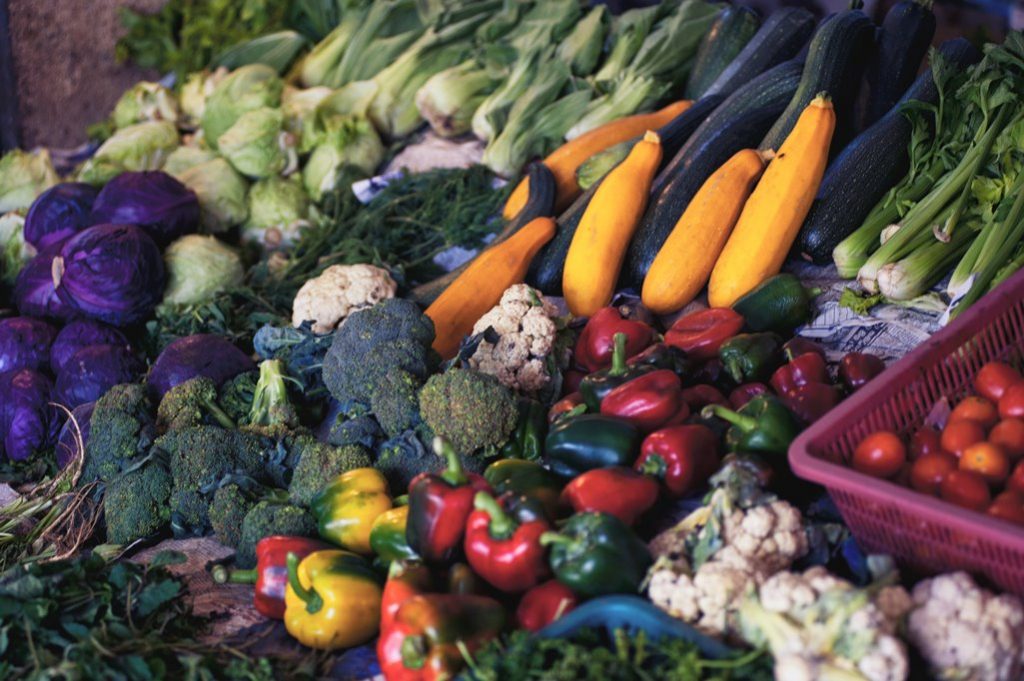Minerals for Inner Health and Skin Care
Through modern food production involving over processed soil and contamination with pesticides as well as some genetic predispositions, we can become deficient of important vitamins and minerals. Stress can also deplete our supplies as well. Drugs, cigarettes and certain pharmaceutical medication can also jeopardize our reserves of vitamins and minerals.
Minerals, as well as vitamins are required for Methylation, one of the most important functions in our body that happens in every cell and every organ of the body. Minerals and the active form of Vitamins act as cofactors and coenzymes respectfully in this process. Methylation is required for DNA production, neurotransmitter formation (mood), hormone production, gut and liver detoxification, energy production, the list goes on.
In this blog, we will cover what certain minerals do for your body and skin and what food source you can find them in.
And remember, taking care of your body is taking care of your skin. Your body feeds your skin.
Zinc
An essential trace mineral, and even though it is at the end of the mineral alphabet, it is one of the most significant for skin health. It is found in every cell of the body and is important for growth and repair. By fighting free radical damage and slowing the ageing process of cells, it is a beautiful anti-ageing mineral. It can also help inflammation and allergies as zinc helps dampen the histamine response. Oral contraceptives and excessive exercise can deplete zinc. Pyrrole disorder is a genetic disorder that causes a loss of zinc and B6 from the body quickly. You need zinc to activate T cells, critical for proper immune function. One study found that “zinc administered within 24 hours of onset of symptoms reduces the duration of common cold symptoms in healthy people.” It is also required to balance insulin. Zinc is needed to convert Vitamin A into its active form, important here in reducing oxidation and inflammation, maintaining good eye health. One research paper states that “replenishing with zinc has been shown to improve cardiac function and prevent further damage” when damage has occurred. White spots on the fingernails can be an indicator that you have low zinc levels. According to the World Health Organisation, zinc deficiency is ranked the fifth-leading risk factor in causing disease worldwide.
Zinc without a doubt is one of the most significant minerals required to help maintain good skin. For its ability to neutralize free radical damage, protecting the collagen producing fibroblasts, controlling inflammation and regulating the skin’s natural oils, it is powerhouse of goodness. Furthermore, in its neurological role, zinc increases BDNF (brain-derived neurotrophic factor) which boosts brain function and acts as an antidepressant. It can also improve GABAergic pathways (associated with anxiety).
Body Works: Anti-inflammatory, antioxidant, production of hormones, immunity, mood disorder, insulin balance, muscle growth and repair, essential for protein synthesis and the breakdown of carbohydrates (nutrient absorption), important for taste, smell and vision.
Food Sources: Almonds, Chickpeas, Pumpkin seeds, Sesame seeds, Sunflower seeds, Cocoa, Grass Fed meat, Cashews, Mushrooms, Spinach , pasture fed Chicken, Oysters and Eggs. Soaking, heating, sprouting, fermenting and leavening will increase the bioavailability of zinc for plant based foods. (Vegetarians are therefore more susceptible to zinc deficiency due to phytic acid affecting bioavailability)
Skin Works: Regulation of sebum (acne, oily skin), anti-inflammatory (skin conditions such as acne, rosacea, and eczema), skin repair and wound healing, protective against UV- induced damage, aids in collagen production (protecting against oxidative stress). Zinc is therefore an important mineral for your skin’s defence.

Magnesium
Magnesium is involved in over 350 biochemical processes in your body, but who’s counting! It is important for the healthy function of most cells especially the heart and muscles.
Magnesium insufficiency or deficiency is really common. It has been recorded to be as much as 80%. Most soils have become severely depleted of nutrients, including magnesium and frequently eating processed foods will magnify this deficiency. Absorption is hindered by excess fat, alcohol, soft drinks, certain drugs and coffee and sweating and the double edged sword is that it Magnesium actually requires Magnesium in the body to be absorbed!
What else is it involved in? The creation of energy, the regulation of blood sugar and insulin sensitivity and it is important in the stabilization of membranes. It has an anti-inflammatory activity and helps with mental and physical relaxation. Feeling tight, crampy, stiff or irritable?–you could be deficient in magnesium. There is a strong link between stress and skin problems. High cortisol produced when stressed leads to higher levels of insulin and increased insulin is associated with increased sebum.
Importantly, a deficiency in magnesium can involve a hiccup in antioxidant regulation.
Body Works: Muscle contraction (including the heart), bone formation, regulation of blood pressure, alleviating the effects of stress on the body, maintenance of hormones, essential for calcium, migraines, detoxification, energy, digestion, brain function, the list continues..
Food Sources: Dark leafy greens, dark chocolate, almonds, pumpkin seeds, cashews, avocado, banana and figs.
Skin Works: Anti-inflammatory (red irritated skin), anti-ageing, hormonal acne.
Due to its common deficiency, it is important to include magnesium rich foods in your diet, just don’t go totally mad on dark chocolate as it still can contain sugar! Magnesium is a vital mineral and supplementation may be required. Some forms of magnesium are far better than others. Mg Citrate and Glycinate have greater bioavailability. –
Iron
Iron is an important mineral required for the oxygen carrying capacity of our blood cells from the lungs to transport throughout your body. If you don’t have enough iron, your body can’t make enough healthy oxygen-carrying red blood cells and your body and skin can suffer. Have you ever noticed a smoker’s skin? It can appear pale and yellowish colour. Smoking depletes oxygen
Low iron is considered the world’s most common nutritional deficiency. Symptoms can be fatigue, muscle weakness, sensitivity to the cold, brittle nails, brittle hair, depression, headaches, restless leg syndrome and gastrointestinal disturbances.
Iron is involved in many enzymatic systems in the body, including those involved in collagen synthesis. Collagen is the most abundant protein in animals, and the major component of connective tissue. –
Body Works: Oxygen to muscles for muscle contraction, immunity strengthening, oxygen for the brain for concentration, neurotransmitter formation (mood), temperature regulation
Food Sources: Liver, beef, dark leafy green vegetables, eggs, legumes, pumpkin seeds, broccoli, beans and oysters. Iron is enhanced by taking Vitamin C foods. Increased requirements of iron for vegetarians are needed as the plant form is more difficult to absorb than the animal form.
Skin Works: Collagen formation, healing of wounds and scars, potentially decrease dark circles, improve skin glow.
Supplementation is best on an empty stomach as absorption in the gut is poor and can be impeded by other foods such as caffeine, fizzy drinks and grains.

Selenium
Selenium recycles Vitamin C and E and protects DNA. This alone makes it important for skin health and longevity. It helps detoxify chemicals and toxic metals and is critical for thyroid hormone production (metabolic rate, heart and digestive function, muscle control, brain development, mood and bone maintenance). Selenium is often deficient in our Australian soils but may not be deficient in others.
Body Works: Antioxidant, anti-inflammatory, with COQ10 for heart protection, blood vessels, thyroid function, detoxification, grey hair prevention
Food Sources: Brazil nuts, sunflower seeds, mushrooms, seafood, meat, poultry, oats, brown rice.
Skin Works: Skin elasticity, calms inflamed skin, protection against UV damage
Potassium
This is not often a deficient mineral unless there are cardiac problems, excessive sweating or gastrointestinal diseases are present and is generally best to obtain by the diet. It is primarily involved in the conduction of electricity (e.g memory and learning in the brain) as well as cell membrane integrity. Sodium, magnesium, calcium and potassium are interlinked and are the 4 nutrients required for overall cell function and therefore the absorption of nutrients.
Body Works: cell protection and function, water and electrolyte balance, alkalizer, muscle strength.
Food Sources: Swiss chard, white beans, banana, avocado, broccoli, beef, grapefruit, sweet potato, mushrooms, prunes, dates, cucumbers, mushrooms, cantaloupe.
Skin Works: Skin hydration and elasticity
Calcium
Calcium, the most abundant mineral in the body is essential for bone health, blood clotting, nerve transmission, muscle contraction and hormone secretion. Calcium in bones is used as a storage area and is released into the bloodstream when required. It is important here to help balance the acid/alkaline environment (pH). A diet heavy on carbonated drinks (phosphorus content), coffee, tea, white flour and beer (acidic foods) will assist in depleting calcium from the bones. Some drugs are phosphorus based so check with your G.P. Hereis a list of acid/alkaline foods. Calcium may also help with appetite suppression. Brittle nails, alopecia (via the synergistic relationship with Vitamin D) and dry skin conditions have been associated with low calcium.
Body Works: Heartbeat, muscle contraction and tone, hormone synthesis and secretion, blood clotting, hair, creates alkalinity.
Food Sources: Broccoli, raw milk, dark green leafy vegetables, sardines, yoghurt, kefir, legumes, almonds, sesame seeds, flaxseeds, quinoa.
Skin Works: brittle nails, dry skin
Vitamin D
Vitamin D is essential for the body to store and use calcium. Magnesium and Vitamin K are also required.
Body Works: Creates Alkalinity, maintains regular heartbeat, maintains muscle contraction and tone, hormone production and release, blood clotting, bone health.
Food Sources: Dark green leafy vegetables, legumes, almonds, sardines, yogurt or kefir, broccoli, sesame seed oil
Skin Works: The prevention of dry skin (skin firmness and elasticity), possibly help with eczema and psoriasis skin conditions.

So many vitamins and minerals exist in dark leafy green vegetables so as your mother has probably said, Eat Your Greens! …….. particularly the dark leafy ones.
Certain nutrients act either antagonistically or synergistically with others. Please always receive advice from a health professional before self-supplementation. Be careful of your sources of food too. Many pesticides and poor soil quality could reduce the nutrient availability or content of your food.





